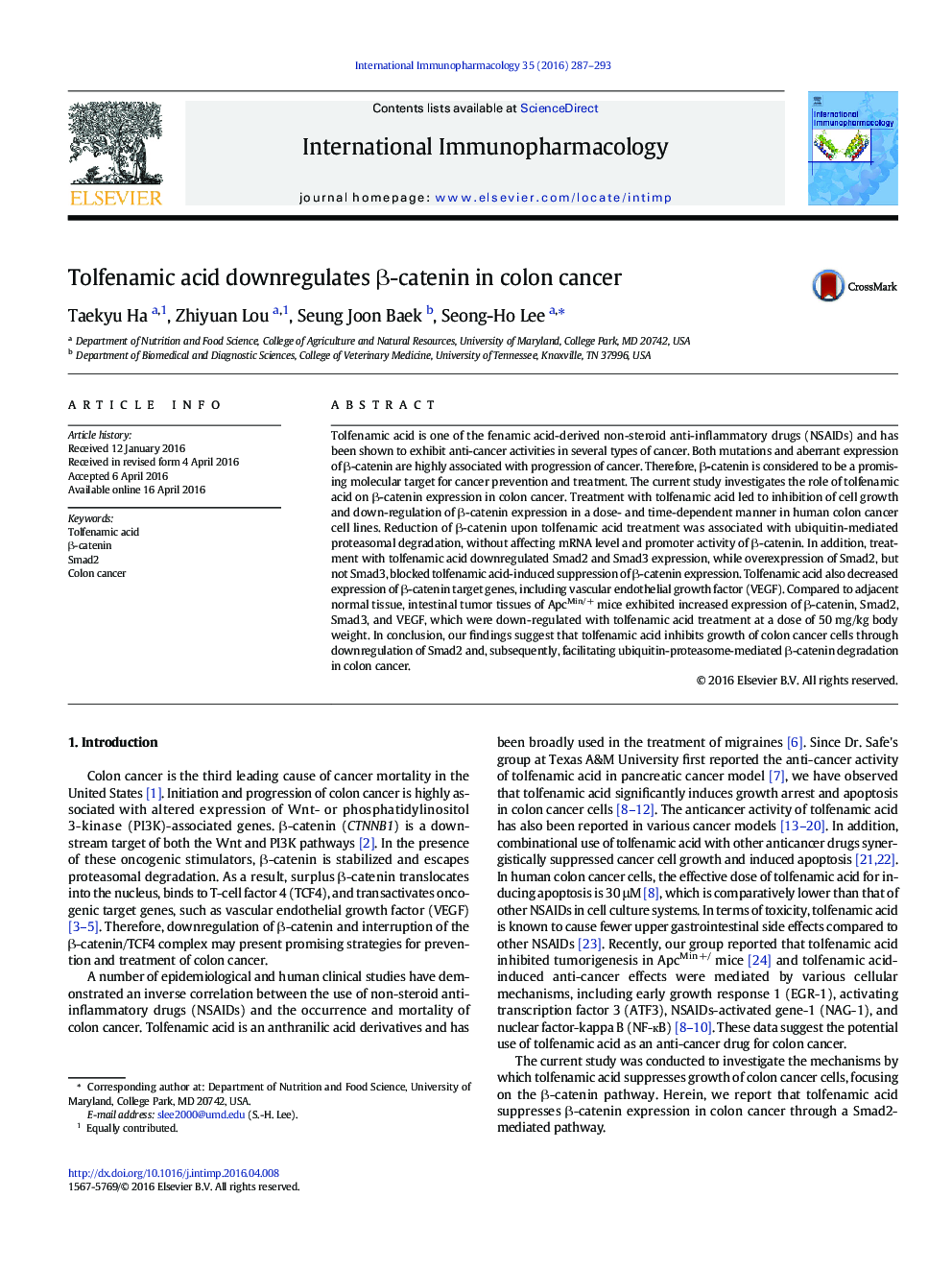| Article ID | Journal | Published Year | Pages | File Type |
|---|---|---|---|---|
| 2540325 | International Immunopharmacology | 2016 | 7 Pages |
•Anticancer mechanism of tolfenamic acid is proposed.•The mechanism relies on activating proteasomal degradation of β-catenin.•Smad2 mediates tolfenamic acid-induced downregulation of β-catenin.
Tolfenamic acid is one of the fenamic acid-derived non-steroid anti-inflammatory drugs (NSAIDs) and has been shown to exhibit anti-cancer activities in several types of cancer. Both mutations and aberrant expression of β-catenin are highly associated with progression of cancer. Therefore, β-catenin is considered to be a promising molecular target for cancer prevention and treatment. The current study investigates the role of tolfenamic acid on β-catenin expression in colon cancer. Treatment with tolfenamic acid led to inhibition of cell growth and down-regulation of β-catenin expression in a dose- and time-dependent manner in human colon cancer cell lines. Reduction of β-catenin upon tolfenamic acid treatment was associated with ubiquitin-mediated proteasomal degradation, without affecting mRNA level and promoter activity of β-catenin. In addition, treatment with tolfenamic acid downregulated Smad2 and Smad3 expression, while overexpression of Smad2, but not Smad3, blocked tolfenamic acid-induced suppression of β-catenin expression. Tolfenamic acid also decreased expression of β-catenin target genes, including vascular endothelial growth factor (VEGF). Compared to adjacent normal tissue, intestinal tumor tissues of ApcMin/+ mice exhibited increased expression of β-catenin, Smad2, Smad3, and VEGF, which were down-regulated with tolfenamic acid treatment at a dose of 50 mg/kg body weight. In conclusion, our findings suggest that tolfenamic acid inhibits growth of colon cancer cells through downregulation of Smad2 and, subsequently, facilitating ubiquitin-proteasome-mediated β-catenin degradation in colon cancer.
